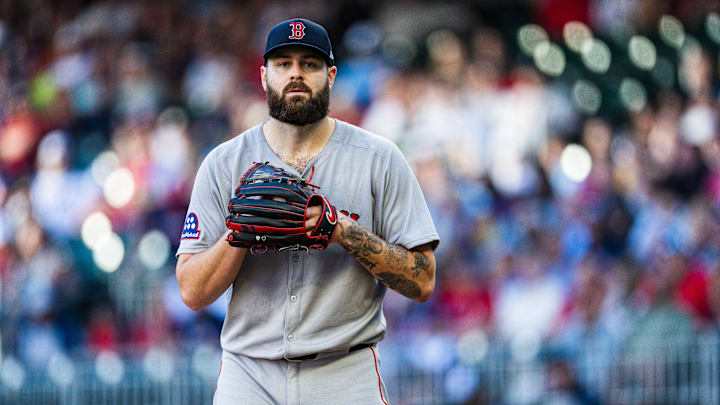The market for underperforming rental starters may not sound like a very exciting one, but it's always a key part of the MLB trade deadline.
It isn't hard to understand why. Just about every team that fancies itself as a contender needs more pitching depth ahead of the playoff push, and rental starters are perfect band-aids over otherwise gaping wounds, since they don't require long-term financial commitments nor massive prospect outlays to acquire. When a pitcher with an established track record of success is underperforming their usual standard, that only serves to drive the prospect price down even further.
Of course, the Boston Red Sox hold two pitchers who fit that paradigm quite nicely. Walker Buehler and Lucas Giolito aren't far removed from wildly successful stretches, though their struggles in Boston, combined with the team's own disappointing performance this season, likely has the Red Sox positioned to be a short-term seller come the trade deadline (even if the front office doesn't want to admit it).
And while that market can be finicky and difficult to navigate in the heat of trade season, the Milwaukee Brewers and Aaron Civale presented a path forward for the Red Sox to ship off some of their most valuable assets. However, he was traded to the White Sox on June 13 in exchange for first baseman Andrew Vaughn.
Aaron Civale trade request could set market for Red Sox starters
Aaron Civale traded to White Sox
— Jon Heyman (@JonHeyman) June 13, 2025
Civale (4.91 ERA in 22.0 innings) requested a trade out of Milwaukee after he was bumped from the starting rotation. The team promoted top pitching prospect Jacob Misiorowski in favor of Civale, despite the fact that he's been a lot better since returning from a hamstring injury in mid-May (3.32 ERA).
Like Buehler and Giolito, Civale is in a contract year and 30 years old. His long-term track record is the least impressive of that trio, though the Brewers' righty has arguably been the most consistent of the bunch in the last few years.
Buehler (5.11 ERA in 55 2/3 innings) and Giolito (5.45 ERA in 39.2 innings) have been far from the pitchers Boston was hoping they'd be, which is partly why they sit at 34-36 and nine games back in the AL East.
Civale is making $8 million this season, compared to $21.05 million for Buehler and $19.25 million for Giolito (those are luxury tax figures). That'll naturally limit their market some, however, Buehler's postseason performance with the Dodgers last year and Giolito's multiple top-10 AL Cy Young finishes will likely bridge some of the perceived gap the salary difference creates.
All this is to say that the Red Sox should very closely be monitoring how the Brewers-Civale saga plays out. Milwaukee's return could dictate the asking price for Buehler and Giolito, especially if they target MLB-ready contributors. Vaughn isn't an impressive return for the Brewers — he's slashing .189/.218/.314 over 48 games this year.
Barring a team-wide turnaround in the next month, there's arguably no storyline more important to the Red Sox's trade deadline fate than the Civale trade.
